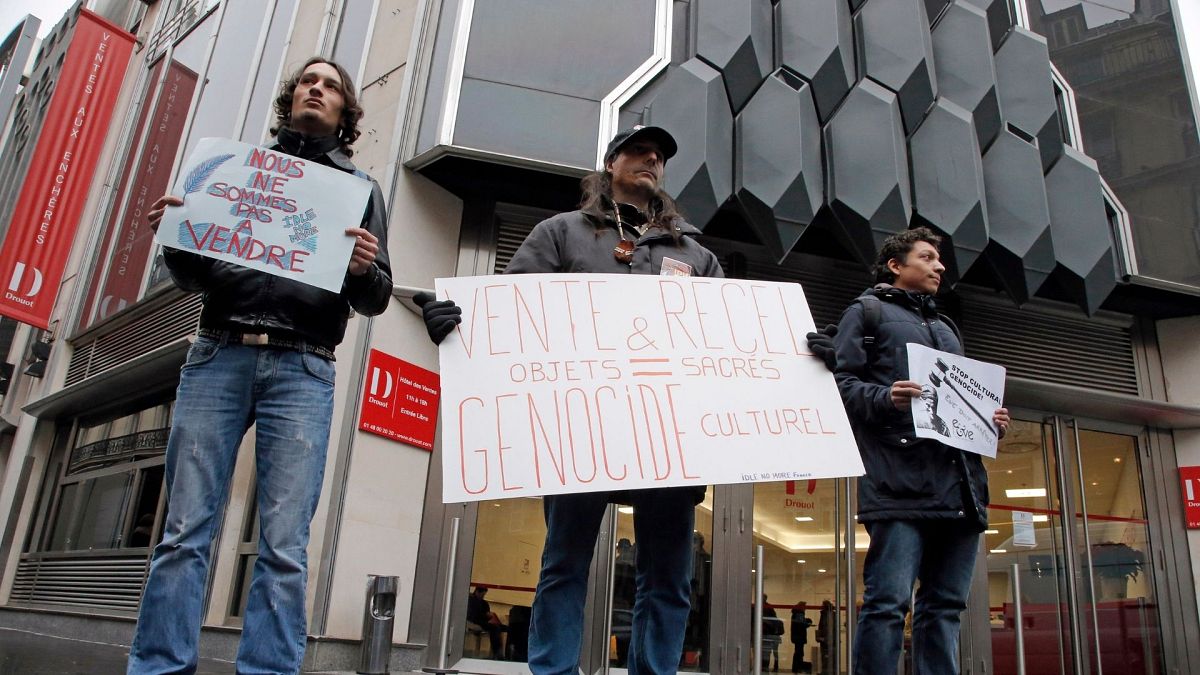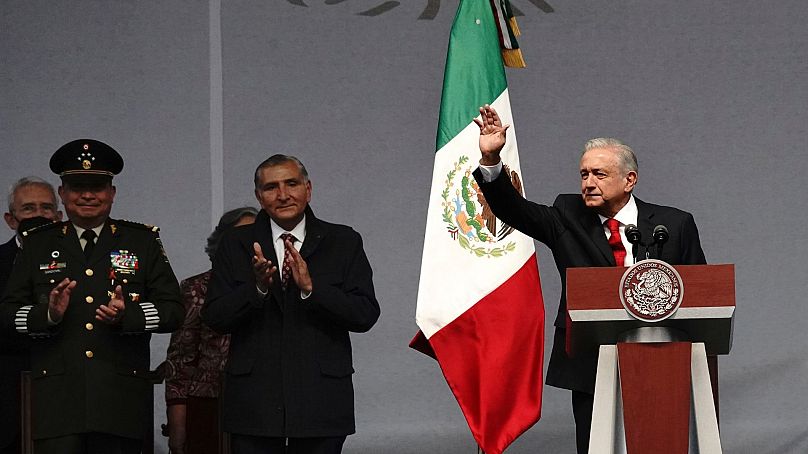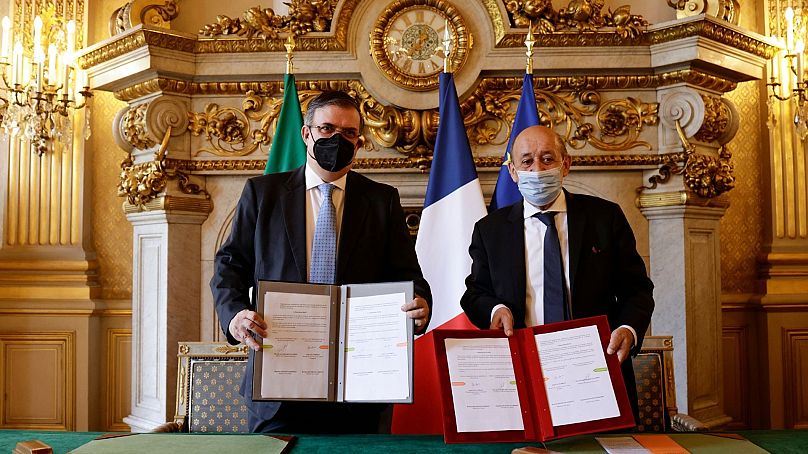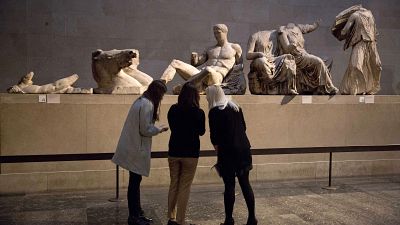The President of Mexico Andrés Manuel López Obrador says French auction houses had gone beyond the pale with brazen sales of pre-Hispanic artefacts.
Mexico's president has called on French auction houses to stop the sale of pre-Hispanic artefacts.
President Andrés Manuel López Obrador says the country has gone so far as to send Mexico's archaeological institute photos of relics, asking if they were genuine, so they could sell them for more money.
This comes as Paris auction houses Société Baecque et Associés and Société Binoche et Giquello prepare for the auctions of native pieces from around the world this month.
The Mexican president has issued orders for the government National Institute of Anthropology and History, known by its Spanish initials as the INAH, to stop responding to such requests.
"They, the organisations that auction these pieces off, are so brazen they ask the INAH for information, they send photos, so the INAH can tell them if these are authentic or fakes," he explains.
The president also took a dig at the French government, which has done nothing to stop a series of such auctions in recent years.
López Obrador says the French should follow the example of the Italian government, which has made a point of identifying and returning ancient artefacts.
"We are going to raise this on the international level. We have managed to recover a lot of pieces and that is very important," says the president.
Lucrative national treasures are hard to return
López Obrador said First Lady Beatriz Gutiérrez Müller had written to France's foreign minister asking the two upcoming sales of around 50 Mexican artefacts to be stopped.
They say many of the pieces in those sales are fakes and ask potential buyers "not to act like criminals."
The president and the first lady have mounted a campaign to win the return of artefacts from the Maya, Aztec and other pre-Hispanic cultures, and the president said 6,000 relics have been returned to Mexico so far.
But despite letter-writing and diplomatic requests, Mexico say they have had little success in convincing the French to crack down on the lucrative trade.
The most recent occurred in November when Christie's Paris branch auctioned off 72 sculptures and figurines from the Maya and Olmec cultures despite Mexico's claim that the pieces were national treasures and part of its national heritage. Fifteen other items failed to sell.
One stone Maya carving, traditionally known as an 'Axe' because of its shape, went for almost €700,000.
The Christie's catalogue described the piece as a "sculpturally-carved bearded dignitary with his head dramatically thrown back and struggling with a sinuous, mythical rattlesnake."
Mexico previously failed to stop several auctions, including a sale of pre-Hispanic sculptures and other artefacts by Christie's Paris earlier last year.
Mexican archaeologist Leonardo López Luján, who has overseen the excavations in Mexico City's Templo Mayor, wrote on his Twitter account at the time that "this is a never-ending story."
"It's proven that the old, recurring method of sending letters and demands does not have any effect, other than pretending that something is being done," he said.
Attitudes are 'anti-culture'
Paris auction houses have often been known to sell indigenous artefacts that are already on the art market.
Protests from activists who say they should be returned to their native lands are yet to discourage them.
Their defences are primarily rooted in legislation. Christie's say expensive the Mayan sculpture, for example, had been bought by a European collector from the US around 1970 – pre-dating the law that protects significant cultural artefacts by two years.
López Obrador also took a dig at Austria for refusing to return a headdress that was reputedly once owned by one of the last Aztec emperors, saying Austria's attitude was "egotistical" and "anti-culture."
The large semicircle of green feathers from the Quetzal bird and other species is more than three feet wide.
Held at the museum of ethnology in Vienna, López Obrador said the Austrians had argued it was too fragile to be moved.
Montezuma, the Aztec emperor, gave the feathered headdress as a gift to Spanish Conqueror Hernan Cortes in 1519. But Mexican officials concede Montezuma probably never personally wore it.





